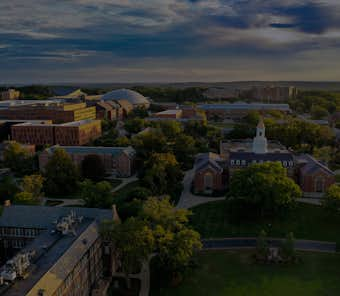
Study biomedical engineering abroad
Find programs that match your eligibility and aspirations then apply with reduced application fees, a free assessment and access to a dedicated advisor.
Find your perfect biomedical engineering programs abroad
Find biomedical engineering programs you love that match your needs & aspirations, where you stand a high chance of acceptance.
Biomedical Engineering degrees abroad
Biomedical engineering applies the principles of science, engineering and medicine to the development and advancement of a range of medical technologies.
As a biomedical engineering student, you’ll develop an academic and practical understanding of engineering systems, as well as studying human physiology and biology. You’ll work towards developing engineering solutions to help solve medical problems, like advanced prosthetics, robots for surgery, diagnostic equipment and artificial organs.
Studying biomedical engineering abroad could be the perfect option if you’re interested in engineering that interacts with the human body. Universities all over the world offer biomedical engineering, so you won’t be short of options when it comes to choosing where to study abroad.

Why use Studee?
-
Find your ideal program
Filter 10,000s of programs down to a shortlist perfect for you, where you have a strong chance of getting admitted
-
Apply online via Studee
Complete our application form and enjoy reduced application fees and access to unique Studee scholarships for many universities
-
We assess within 48hrs
We complete an 85-point assessment within 2 business days, help you with improvements then submit to your university
-
University offer in 2-4 weeks
We chase the university for your admission decision and keep you updated. We all celebrate your admission!
All our services are 100% free as we're funded by universities. You pay deposits and tuition fees directly to the university.

Biomedical Engineering program structure
You can study biomedical engineering at undergraduate and postgraduate levels. At the undergraduate level, many universities offer a BEng (Bachelor of Engineering) program that usually lasts three years. Alternatively, you can choose an MEng (Master of Engineering) program, which combines a bachelor’s and master’s degree into one four year course.
If you choose to study in the US, you can earn a BSc in biomedical engineering by choosing it as your major concentration. This means you’ll gain a liberal arts education while dedicating a certain amount of credits to biomedical engineering modules over four years of study.
If you have a bachelor’s degree and want to continue your education, many universities offer MSc programs in biomedical engineering over one or two years. To be accepted into this type of program your bachelor’s degree will need to be in a related subject, and you may need to have achieved a certain grade. PhD programs are also offered at several universities, and usually take around five years to complete.
As a subject that combines practical and theoretical elements, most programs are taught through lectures, seminars, tutorials, and laboratory sessions. Some courses will give you the opportunity of working in the industry gaining real-world experience in professional laboratories.
Most biomedical engineering programs are made up of core modules and electives you can choose yourself. Each university will offer their own unique curriculum, but some of the most common modules you’ll study include:
- Mathematics for engineering
- Programming
- Mechanical systems
- Human anatomy and physiology
- Biological medical science
- Medical biophysics
- Medical instrumentation
- Mechatronics
Best countries to study biomedical engineering
Best universities to study biomedical engineering
Biomedical Engineering study abroad programs
Biomedical engineering undergraduate programs
Bachelor's in biomedical engineering
-
Biomedical Engineering with honours - BEng RMIT University, Australia
- Program type
- Bachelor's
- Duration
- 4 years
- Annual tuition fee
-
43,200 AUD
Fees are displayed in the university's local currency
- Start date
- February, July
-

Biomedical Engineering - BAppSc University of Waterloo, Canada
- Program type
- Bachelor's
- Duration
- 4 years
- Annual tuition fee
-
50,000 CAD
Fees are displayed in the university's local currency
- Start date
- September
-
Biomedical Engineering - BSc University of South Carolina, USA
- Program type
- Bachelor's
- Duration
- 4 years
- Annual tuition fee
-
34,934 USD
Fees are displayed in the university's local currency
- Start date
- August, January
-

Biomedical Engineering - BScEng University of Calgary, Canada
- Program type
- Bachelor's
- Duration
- 4 years
- Annual tuition fee
-
35,136 CAD
Fees are displayed in the university's local currency
- Start date
- September
-

Biomedical Engineering - BSc Florida International University, USA
- Program type
- Bachelor's
- Duration
- 4 years
- Annual tuition fee
-
18,566 USD
Fees are displayed in the university's local currency
- Start date
- January
Associate in biomedical engineering
-

Biomedical Engineering Technology - AASc Portland Community College, USA
- Program type
- Associate
- Duration
- 26 months
- Annual tuition fee
-
10,065 USD
Fees are displayed in the university's local currency
- Start date
- September, January, March, June
-
Engineering Technology: Electronics–Biomedical Equipment Technician - AASc College of Southern Nevada, USA
- Program type
- Associate
- Duration
- 2 years
- Annual tuition fee
-
11,048 USD
Fees are displayed in the university's local currency
- Start date
- August, January, June
-

Healthcare Technology Management / BioMedical Equipment Technology - AASc North Seattle College, USA
- Program type
- Associate
- Duration
- 2 years
- Annual tuition fee
-
12,445 USD
Fees are displayed in the university's local currency
- Start date
- June, September, January, April
Diploma in biomedical engineering
-

Biomedical Engineering Technology - Dip British Columbia Institute of Technology, Canada
- Program type
- Undergraduate diploma
- Duration
- 2 years
- Annual tuition fee
-
25,450 CAD
Fees are displayed in the university's local currency
- Start date
- January
Certificate in biomedical engineering
-
Biomedical Engineering Technology - Cert Laney College, USA
- Program type
- Undergraduate certificate
- Duration
- 1 year
- Annual tuition fee
-
10,740 USD
Fees are displayed in the university's local currency
- Start date
- August, January, June
Biomedical engineering graduate programs
Master's in biomedical engineering
-

Biological and Biomedical Engineering - MEng McGill University, Canada
- Program type
- Master's
- Duration
- 2 years
- Annual tuition fee
-
19,728 CAD
Fees are displayed in the university's local currency
- Start date
- January, September
-

Biomedical Engineering - MSc Florida Atlantic University, USA
- Program type
- Master's
- Duration
- 2 years
- Annual tuition fee
-
19,792 USD
Fees are displayed in the university's local currency
- Start date
- January, May, August
-

Biomedical Engineering - MAppSc Carleton University, Canada
- Program type
- Master's
- Duration
- 2 years
- Annual tuition fee
-
20,517 CAD
Fees are displayed in the university's local currency
- Start date
- September
-
Biomedical Engineering - MEngSc Vilnius Tech, Lithuania
- Program type
- Master's
- Duration
- 2 years
- Annual tuition fee
-
5,410 EUR
Fees are displayed in the university's local currency
- Start date
- September
-
Biomedical Engineering - MSc Florida A&M University, USA
- Program type
- Master's
- Duration
- 2 years
- Annual tuition fee
-
25,868 USD
Fees are displayed in the university's local currency
- Start date
- January, May, August
Doctorate in biomedical engineering
-
Biomedical Engineering - PhD Rowan University, USA
- Program type
- Doctorate
- Duration
- 3 years
- Annual tuition fee
-
16,400 USD
Fees are displayed in the university's local currency
- Start date
- January, September
-
Biomedical Engineering - PhD Florida A&M University, USA
- Program type
- Doctorate
- Duration
- 2 years
- Annual tuition fee
-
25,868 USD
Fees are displayed in the university's local currency
- Start date
- January, May, August
-

Biomedical Engineering - PhD University of Manitoba, Canada
- Program type
- Doctorate
- Duration
- 4 years
- Annual tuition fee
-
8,859 CAD
Fees are displayed in the university's local currency
- Start date
- September
Diploma in biomedical engineering
-
Biomedical Engineering - Integrated PGDip/MSc Ulster University, UK
- Program type
- Postgraduate diploma
- Master's
- Duration
- 1 year
- 1 year
- Annual tuition fee
-
17,090 GBP
Fees are displayed in the university's local currency
- Start date
- September, January
Certificate in biomedical engineering
-
Biomedical Engineering Technology (Fast-Track) (Optional Co-op) - OCGCert Centennial College, Canada
- Program type
- Postgraduate certificate
- Duration
- 2 years
- Annual tuition fee
-
18,594 CAD
Fees are displayed in the university's local currency
- Start date
- September, January
Future biomedical engineering careers
As a biomedical engineering graduate you’ll have developed the skills needed to enter the rapidly expanding manufacturing and health care sector. Some of the careers you might consider include:
- Biomedical engineer
- Biomedical scientist
- Nanotechnologist
- Medical research scientist
- Prosthetic design engineer
- Medical device specialist
- Clinical engineer
- Rehabilitation engineer
To help you achieve your career goals, make use of your university’s careers services. They can help you work out what path you’ll need to take to get the job you want, and can put you in contact with relevant employers when you’re ready to start applying.






















